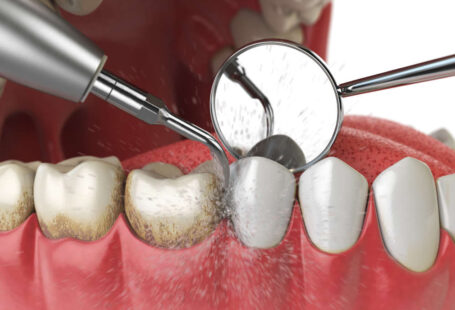Can I get a root canal done while pregnant?
Yes, you can get a root canal done while pregnant, and it is generally considered safe when necessary. Dental care, including root canals, is essential during pregnancy to address dental issues and prevent potential complications that could affect your overall health and the health of your baby.
However, there are some important considerations to keep in mind when scheduling and undergoing a root canal or any dental procedure during pregnancy:
- Timing: The second trimester (weeks 13 to 27) is often considered the safest time for dental procedures during pregnancy. By this stage, the baby’s major organ systems have formed, and the risk of complications from dental treatments is lower. Dental procedures during the first trimester and third trimester are generally safe but may require additional precautions.
- Anesthesia: Local anesthesia used during a root canal procedure is generally safe during pregnancy. Your dentist will use the smallest effective dose to ensure your comfort. If you have concerns about anesthesia, discuss them with your dentist.
- Radiographs (X-rays): If X-rays are necessary for diagnostic purposes during a root canal, your dentist will take precautions to minimize radiation exposure. A leaded apron and thyroid collar can be used to protect you and the baby. The use of digital X-rays further reduces radiation exposure.
- Medications: Inform your dentist and healthcare provider about your pregnancy and any medications you are taking, including prenatal vitamins and supplements. Your dentist will consider this information when planning your dental treatment and may select medications that are safe during pregnancy.
- Positioning: During the procedure, your dentist may use a slightly reclined position, which is generally safe during pregnancy. However, if you are in the third trimester and it is uncomfortable to lie on your back, inform your dentist, and they can make necessary adjustments.
- Follow-up Care: After the root canal, follow any post-procedure care instructions provided by your dentist. This may include taking prescribed medications and scheduling follow-up appointments.
It’s important to address dental issues, such as a root canal, promptly during pregnancy to prevent further complications and potential infections that could impact your overall health. Ignoring dental problems can lead to more significant issues, which could affect both you and your baby.
Before undergoing any dental procedure during pregnancy, it’s advisable to consult with your dentist and discuss your specific situation. They can provide guidance and ensure that the treatment is carried out safely and effectively while considering your pregnancy.
Why dental treatment is avoided during pregnancy?
Dental treatment is not necessarily avoided during pregnancy; in fact, it is essential to maintain good oral health during pregnancy to prevent potential complications that could affect both the pregnant individual and the developing baby. However, there are some misconceptions and concerns that may lead to hesitation or avoidance of dental treatment during pregnancy. Here are a few reasons why some individuals may be hesitant about dental treatment during pregnancy:
- Misconceptions About Safety: Some pregnant individuals may mistakenly believe that dental treatments, including X-rays and anesthesia, are unsafe during pregnancy. While there are precautions and considerations, many dental procedures can be safely performed during pregnancy, especially during the second trimester when the risks are lower.
- Morning Sickness and Discomfort: Nausea and vomiting during the first trimester (morning sickness) can make dental appointments less appealing. Additionally, the physical discomfort associated with pregnancy, especially in the third trimester, may make it challenging for some individuals to lie back in the dental chair.
- Fear or Dental Anxiety: Existing dental phobias or anxieties can become more pronounced during pregnancy. Fear of pain or complications may lead some individuals to avoid dental care altogether.
- Cost Concerns: Dental care can be expensive, and some pregnant individuals may be concerned about the cost of dental treatment, especially if they don’t have dental insurance or financial resources readily available.
- Previous Negative Experiences: Past negative experiences with dental treatments or providers may lead to apprehension about seeking dental care during pregnancy.
- Lack of Information: Lack of awareness about the importance of dental care during pregnancy and the safety of specific treatments may lead some individuals to avoid seeking dental care.
It’s crucial to address these concerns and misconceptions to ensure that pregnant individuals receive the necessary dental care. Neglecting dental problems during pregnancy can lead to more significant issues, such as gum disease and dental infections, which can impact overall health.
To address these concerns and receive appropriate dental care during pregnancy:
- Consult with Your Dentist: Talk to your dentist about your concerns and questions related to dental care during pregnancy. They can provide guidance and reassurance, as well as recommend safe and necessary treatments.
- Choose a Dentist with Experience in Treating Pregnant Patients: Look for a dentist who has experience in providing dental care to pregnant individuals. They will be familiar with the special considerations and precautions necessary during pregnancy.
- Plan Dental Visits During the Second Trimester: Whenever possible, schedule dental appointments during the second trimester, which is generally considered the safest time for most dental procedures.
- Maintain Good Oral Hygiene: Practicing good oral hygiene habits, including regular brushing, flossing, and using fluoride toothpaste, can help prevent dental problems during pregnancy.
Overall, it’s important to prioritize oral health during pregnancy and not avoid necessary dental care. Dental problems can have implications for both the pregnant individual and the developing baby, so seeking professional care is essential for a healthy pregnancy.
Which trimester is safe for root canal?
Root canal treatment can be performed during pregnancy if necessary, but the second trimester (weeks 13 to 27) is generally considered the safest time for most dental procedures, including root canals. By the second trimester, the baby’s major organ systems have formed, and the risk of complications from dental treatments is lower compared to the first and third trimesters.
However, dental treatment, including root canal therapy, can be safely performed during the first and third trimesters as well, provided that necessary precautions are taken to ensure the safety and comfort of both the pregnant individual and the developing baby. Here are some important considerations:
- First Trimester (Weeks 1-12): While the first trimester is a critical time for fetal development, it is generally safe to perform dental procedures, including root canals, when necessary. Elective procedures and X-rays may be postponed if possible, but addressing dental issues that require immediate attention is essential to prevent potential complications.
- Second Trimester (Weeks 13-27): The second trimester is often considered the optimal time for dental procedures, including root canals. By this stage, most major organ development is complete, and the risks associated with dental treatments are lower. Local anesthesia and other necessary precautions can be administered safely.
- Third Trimester (Weeks 28-40+): Dental treatment can still be performed during the third trimester, but there may be some practical challenges, such as physical discomfort for the pregnant individual due to the baby’s size and position. It’s advisable to schedule dental appointments earlier in the trimester if possible.
Some additional considerations for root canal treatment during pregnancy include:
- Anesthesia: Local anesthesia is typically used during a root canal procedure and is generally safe during pregnancy. The dentist will use the smallest effective dose to ensure comfort.
- Radiographs (X-rays): If X-rays are necessary for diagnostic purposes during a root canal, your dentist will take precautions to minimize radiation exposure. A leaded apron and thyroid collar can be used to protect you and the baby.
- Medications: Inform your dentist and healthcare provider about your pregnancy and any medications you are taking, including prenatal vitamins and supplements. Your dentist will consider this information when planning your dental treatment and may select medications that are safe during pregnancy.
- Positioning: During the procedure, your dentist may use a slightly reclined position, which is generally safe during pregnancy. However, if you are in the third trimester and it is uncomfortable to lie on your back, inform your dentist, and they can make necessary adjustments.
It’s important to address dental issues promptly during pregnancy to prevent further complications and potential infections that could impact your overall health. Ignoring dental problems can lead to more significant issues, which could affect both you and your baby.
Before undergoing any dental procedure, including a root canal, during pregnancy, consult with your dentist to discuss your specific situation and receive personalized guidance and treatment.
Is root canal more painful than Labour?
Comparing the pain experienced during a root canal procedure and labor is challenging because pain is subjective and can vary greatly from person to person. However, there are some factors to consider:
- Duration of Pain: Labor pain is typically more prolonged and intense than the pain experienced during a root canal. Labor can last for hours, and the pain tends to come in waves with contractions. In contrast, the discomfort during a root canal is usually limited to the duration of the procedure, which typically takes an hour or less.
- Nature of Pain: The nature of the pain is different for root canals and labor. Root canal pain is typically localized to the affected tooth and surrounding area and is usually well-managed with local anesthesia and pain medication. Labor pain, on the other hand, involves contractions and can radiate throughout the lower abdomen and back, often described as more intense and all-encompassing.
- Purpose and Outcome: Labor is a natural biological process that results in the birth of a baby, while a root canal is a dental procedure aimed at saving a tooth and relieving pain or infection. The perception of pain in labor may be influenced by the anticipation of a positive outcome, i.e., the birth of a child.
- Individual Variability: Pain perception is highly individual, and what one person experiences as more painful may be different for another person. Factors such as pain tolerance, anxiety, and previous experiences can influence how pain is perceived.
It’s important to note that both root canal procedures and labor are typically managed with pain relief measures to make the experience as comfortable as possible for the individual. Dentists use local anesthesia during root canals, and healthcare providers offer various pain management options, including epidurals and other pain medications, during labor.
Ultimately, whether a root canal or labor is more painful is subjective and can vary from person to person. The perception of pain is influenced by numerous factors, and what may be more painful for one individual may not be the same for another. It’s essential for healthcare professionals to provide appropriate pain management options and support during both dental procedures and labor to ensure the comfort and well-being of the individual.
Can a root canal infection affect your baby?
A root canal infection, if left untreated during pregnancy, can potentially affect your overall health, but the risk of it directly harming the developing baby is relatively low. However, it’s essential to address dental infections and other dental issues promptly during pregnancy to prevent complications that could indirectly impact your health and well-being.
Here are some key points to consider:
- Systemic Infection Risk: An untreated dental infection, including one associated with a root canal, can lead to a systemic infection if the bacteria from the infected tooth enter the bloodstream. While rare, systemic infections can potentially affect various parts of the body, including the heart and lungs. During pregnancy, maintaining good overall health is important to support the health of both the pregnant individual and the developing baby.
- Inflammation and Stress: Dental infections can cause localized inflammation and discomfort, which can increase stress and potentially affect pregnancy outcomes. Chronic stress during pregnancy is generally not advisable and can have various health implications.
- Pain and Discomfort: Dental infections and tooth pain can make eating and maintaining proper nutrition challenging. Adequate nutrition during pregnancy is crucial for the healthy development of the baby.
- Preventive Measures: Addressing dental issues, including root canal infections, with appropriate dental care and treatment is essential to prevent complications during pregnancy. Dental procedures can be performed safely during pregnancy with the necessary precautions.
If you suspect or have been diagnosed with a dental infection or any dental issue during pregnancy, it’s essential to consult with your dentist as soon as possible. Your dentist can provide appropriate treatment options and guidance to ensure that the issue is addressed promptly and safely.
Additionally, practicing good oral hygiene habits, including regular brushing, flossing, and dental checkups, can help prevent dental infections and other oral health problems during pregnancy. Maintaining good oral health is an essential part of overall prenatal care and contributes to a healthy pregnancy.







